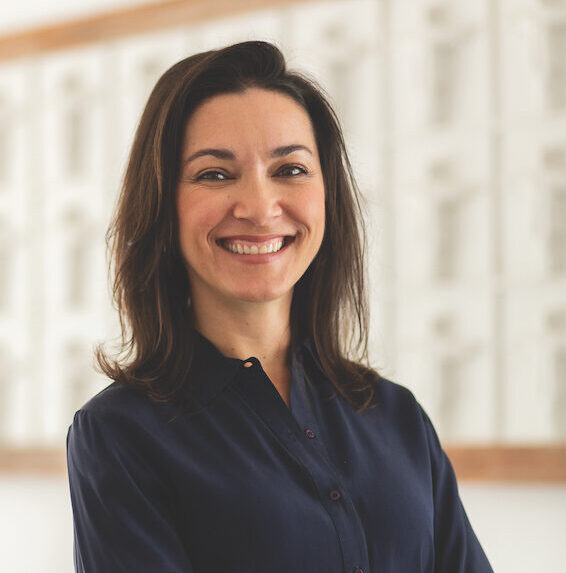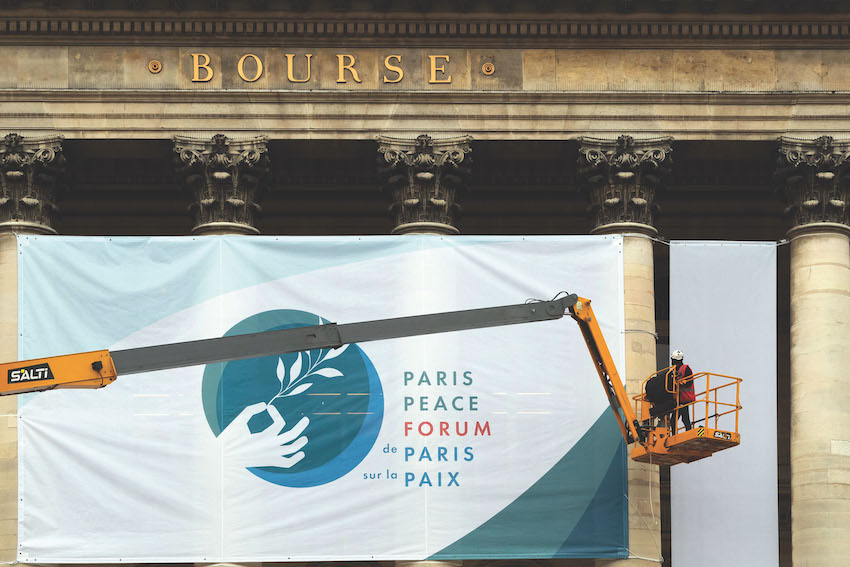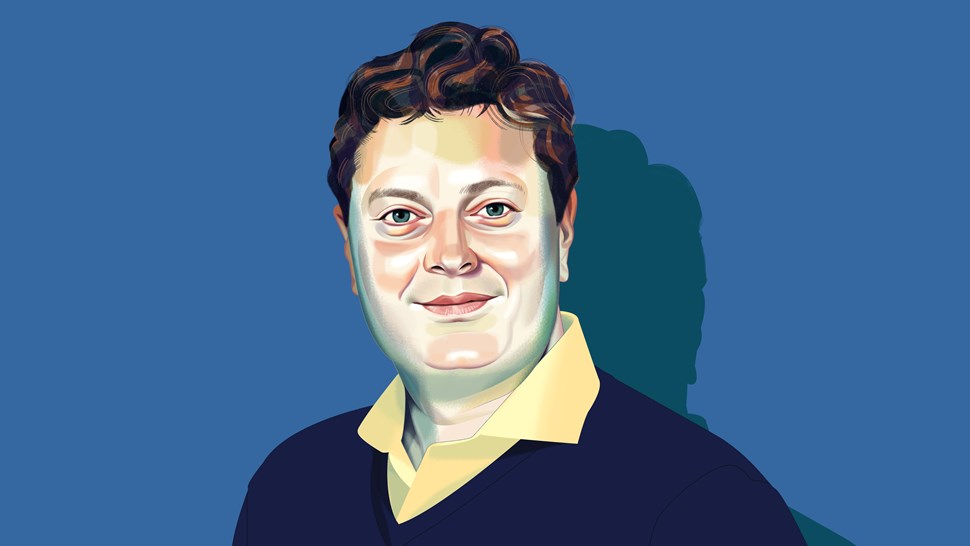At the Paris Peace Forum, four experts discuss the challenges and expectations for business in confronting the world’s nature crisis, led by Brunswick’s Lucy Parker.
Amid a throng of business, government and NGO leaders at the 2022 Paris Peace Forum, Brunswick’s Lucy Parker spoke with four experts for a discussion comparing expectations for the upcoming COP15 global gathering on biodiversity and the engagement of business around the nature crisis.
The panelists represented a range of stakeholders in various sectors and various parts of the world who each see business action as central to unlocking solutions for biodiversity. Collectively, the group emphasized the need for data in shaping constructive policy and action, and the critical need for companies to not wait, but to begin immediately on a path toward greater transparency and dialogue on this issue with their relevant communities around the world.
Laura Waisbich is a Senior Researcher at the Igarapé Institute, a Brazilian “think and do tank” focused on the Amazon rainforest. The Institute’s mission is to contribute to public, climate and digital security, acting as a bridge between global and local imperatives.
Andy Howard is the Global Head of Sustainable Investment at Schroders Asset Management. Schroders announced their Plan for Nature in November 2022, including investment insights, company engagement and innovative financing solutions.
Pauliina Murphy is Director of Engagement for the World Benchmarking Alliance, which aims to engage the private sector in achieving progress on the UN’s Sustainable Development Goals.
Farid Baddache is the CEO and co-founder of the social purpose organization Ksapa. Based in Paris, Ksapa works with businesses and investors to help them build resilience and inclusiveness into their decision making.
Parker led the discussion. A Partner and the Business & Society Global Lead for Brunswick, she is also co-author, with Jon Miller, of two books, the newly published The Activist Leader: A New Mindset for Doing Business, and the 2013 Everybody’s Business: The Unlikely Story of How Big Business Can Fix the World.
Laura, you’re based in the Amazon Basin, which is the hotspot globally of the issues of climate change, deforestation and biodiversity come together, including with communities on the ground. Can you give us a snapshot of the realities for this part of the world?
LW: In the Amazon, which indeed is one of the hotspots globally, at least three environmental planetary crises are unfolding; the climate crisis, the biodiversity crisis and the pollution crisis. On top of that, there is a social and illegality crisis taking place right now. If we are all used to seeing the Amazon as this one place that we need to protect for environmental purposes, we also need to think about it as a hotspot of organized crime.
Nowadays over 90% of deforestation in the Amazon is illegal. Not only the loss of forest, but an ecosystem of environmental and non-environmental illegalities is taking place now. That means illegal logging, illegal mining, land grabbing, agriculture tainted with illegalities, but also corruption, fraud, social violence. So it’s also about the social crisis and a governance crisis that’s taking place over there.
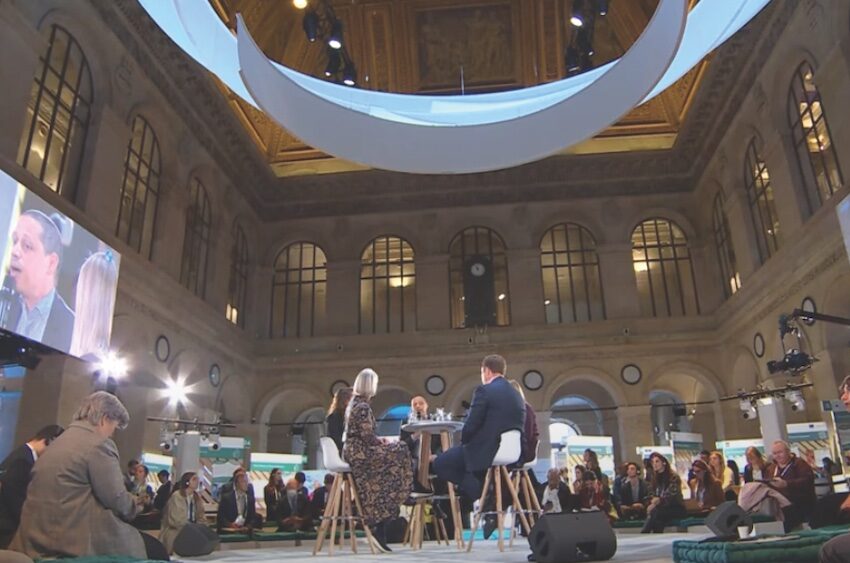
Lucy Parker was the moderator of the panel to discuss biodiversity. The discussion took place at the fifth edition of the Paris Peace Forum, held at the Palais Brongniart in the heart of Paris.
A significant focus of your work is providing data about what’s going on on the ground.
Exactly. We consider it important to showcase what’s happening. We’re not just there to flag the problems, we’re there to help find solutions, to help public and private actors to do better.
Part of the response that’s needed is to actually understand the context and data. So here at the Paris Peace Forum, we’re soft launching the sustainable Amazon dashboard (see page 66, “Amazônia in Loco”) which is a platform that combines data from public sources and NGOs like ourselves, to try and shine a light on the dynamics on the ground.
Those in the private sector know the language of due diligence; how to do business is to know your client. We also think you have to know your context. Organizations that are based on the ground, like ourselves and our partners—and we’re not the only ones—can help the private sector to know the context they’re operating in. You need to know the risks and impacts of your activities on your clients, your partners, on the environment and the communities. Data is definitely part of that.
Andy, Schroders has recently made some significant commitments on nature. Why are you, as an asset manager, stepping into this space?
AH: There’s been a huge amount of focus on climate change, quite rightly, over the last few years. But in many ways, you can see it as symptomatic of an even bigger challenge. And that bigger challenge is the inevitable conflict between growing global demand and the world’s finite resources. The natural environment is well past the point of being in credit. We’ve been operating in deficit—and that deficit’s been getting bigger. That creates risk and it creates opportunities.
But fundamentally it requires us, the finance industry, to think differently about what our role is across a whole range of areas. At base, the asset management industry is about investing capital into areas of need, and there are few greater areas of need than support for the natural environment. So, for us, this is a critical question about how we think about the way we engage companies, the way we allocate capital. I won’t pretend we have all the answers, we absolutely don’t. But thinking differently about questions in today’s environment is not a choice. It’s how we have to run our business and how we have to behave as investors.
So you aim to influence companies to tackle the issue of nature: How are you doing that?
There are two things that we try to do. First of all, it’s the data. We invest in 16-17,000 companies around the world. We use analysis to identify those companies that are at greater risk, or that are having a greater impact on nature. And we use our voice to push those companies to be more transparent, to establish goals, to establish strategies about how they’re going to deliver those goals—and then to hold their hands while they’re doing that. Over the last three years we’ve had over 200 engagements with large companies around the world on how they’re managing biodiversity exposure and biodiversity impact within their business. And that’s something we try to do across all the portfolios we manage.
The second thing we do is to create new kinds of investment vehicles. We announced a couple of months ago a joint venture with Conservation International based in Southeast Asia to invest in nature in that part of the world. Certainly, we hear from our clients around the world that they want to invest in nature-based solutions, so we’re creating a capability to direct capital to areas that can make a difference.
Farid, in your view, there’s a danger that there’s a missing link here, in that this needs to land in the reality for farmers. Can you talk about that?
FB: At Ksapa, we’re coming with a different perspective. Early targets on deforestation from 2010 were not met. I was part of a lot of deforestation commitments made in 2015 and, to the best of my knowledge, I think it’s been really a failure. No corporation had been able to meet zero deforestation targets a couple of years ago.
In response, what we’ve been trying to do at Ksapa with companies and investors is to put attention on what we see as the missing link. There’s a lot of high-level talk about net-zero deforestation, net-zero carbon, biodiversity preservation and so on. But these things are difficult to secure. A farmer at the end of the day or a community on the ground—say, in Amazonia—is coming from a different perspective: need to survive, need to make a living.
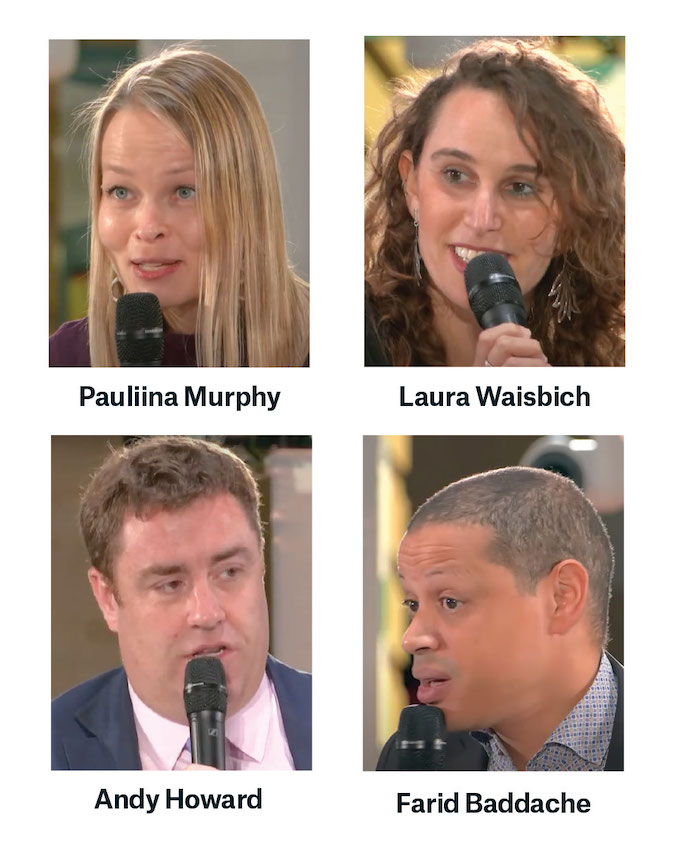
So what can be done in practical terms at that smallholder and community level?
There are many things that have to be done at that level to encourage more circularity, more intercropping, more diversity of revenues. A lot of things that secure resilient community activities. So, this is the missing link that we try to focus on: combining a lot of high-tech and very smart digital systems that are deployed.
We try to equip communities with simple and accessible low-tech solutions. Making sure they are equipped and aware, that they can get trained, they can flag issues, they can take part in the data collection process. Along with building the right financial mechanisms, we’re starting from what they need, in terms of improving yields, maximizing biomass production and carbon sequestration, for example, which ultimately, after securing additional revenues, enable them to be more resilient, enable them to be qualified as carbon assets.
This requires a lot of the effort on the ground and the right recipe to ensure replicability and scalability, which is why we need the digital platform to manage complexity.
Pauliina, the common factor coming through so loudly in this discussion is data. From your point of view in the World Benchmarking Alliance, what is the role of data?
PM: Listening to this conversation, I agree with everything. To have effective benchmarks, to understand what companies are doing and where priority actions need to focus, we need robust, good quality data. The data can’t just focus on the headquarters of a company, it has to go through the value chain. And getting that good quality data is incredibly difficult—particularly in biodiversity and nature, where understanding corporate impacts on the ground is still a novel approach.
We kind of know what we’re doing on climate; we know what we need to measure in terms of emissions, we know we need Scope 1, 2 and 3. But a similar kind of understanding of nature impacts is very difficult. And we’re not there yet.
For you, the point is to drive action. What kind of action do you think the private sector should be taking?
Exactly. If we have a benchmark but it’s just as an academic exercise, nothing changes. Through our benchmarks, when we look at our nature transformation, we look at land and sea use changes, direct exploitation of resources, pollution, indigenous land rights and then the methodology for company assessments. That’s, hopefully, informing companies themselves about where their disclosures are not up to standard, or investors who need to know what issues to engage the companies on. That’s the idea behind the Benchmarking Alliance.
Is it possible that sometimes lack of data is used as an excuse for inaction? Do we have to wait for data?
AH: I totally agree that using a lack of data as a reason for inaction makes no sense. In pretty much every area of investment you’re dealing with imperfect data and you’re making judgments; you’re making decisions that are as right as you can get them. When we think about something like biodiversity exposure and impacts, we certainly don’t have all of the information we would like. What’s really critical is that you frame what question we are trying to answer, what information can we find that will help us answer that question, recognize the shortfalls in that information and then try and work to improve that over time.
For example, we have very little understanding of individual companies’ supply chains; it’s just not disclosed. But what we can do is look at different industries and get a view of, to what degree that industry is exposed to different countries and to other industries. We can take an imprecise but an approximate view, and then use that to try and understand where to engage and push for more transparency, try and create that virtuous circle of better understanding, better engagement, better disclosure. There is absolutely enough information to get started.
“We kind of know what we’re doing on climate; we know what we need to measure in terms of emissions … But a similar kind of understanding of nature impacts is very difficult. And we’re not there yet.”
Pauliina Murphy
Laura, in the Igarapé Institute, your data is really focused on what’s happening on the ground. Do you have any cause for optimism?
LW: I think we have to be both optimistic but also concerned that we’re not doing enough. There is really a lack of political will, and corporate will, to go beyond what is there. I fully agree that whatever data we get, it’s imperfect. We value partnerships that are able to take us there and keep improving on that and be meaningful about what we need to do differently. But there is cause for optimism when we see the discussion about bioeconomy in the Amazon right now.
What does the bioeconomy mean?
In the case of the Amazon that means economic activity that’s compatible with the standing forest—not only the forest itself but also the people and communities, and knowledge that lives around it. So the bioeconomy intends to shift the current paradigm that prospers by destroying the forest.
Is there any sign that the bioeconomy is happening in the Amazon?
Yes, there is. There are a couple of examples of production and commodities that are compatible with the standing forest. Some of them are commodities; some of them are fruits or nuts. But scale matters here: We actually need the mainstream to be the bioeconomy, we need agroforestry to be mainstream rather than monoculture.
There’s definitely scientific advance in terms of low-carbon cattle ranching. But this is an ongoing competition between models. We need more private and public investment in order for low-carbon agriculture and low-carbon cattle ranching to be mainstreams. We don’t need the expansion of agriculture. What we need is to stop deforestation and improve the productivity of whatever is already there. We need to assume that enlarging the area for agriculture and cattle ranching into forest areas is just the worst business decision you can take.
Farid, you’ve said that the 2015 ambitions to halt deforestation failed. So do you see capacity building as the missing link in creating scalable solutions?
FB: Trying and failing happens; the question is what we learn from that. Looking at benchmarking, for example, is very good because that increases emulation in companies. It’s a good way to push companies to think harder. Another thing is compliance—that definitely supports the reasons to be optimistic. The European Union among others is particularly active with the directive on deforestation. And for investors through the taxonomy, that’s the principle of “do no significant harm.”
Data is important for scalability, and for having a landscape approach. It’s not about having perfect data but about finding the right smart data level, capable at a landscape level to show if we are on a good trajectory or not; that’s what matters at the end of the day.
And for the missing link, it’s about defining indicators that align interests of multiple stakeholders—for example, in access to raw material of companies or mitigating risks of conflict, which requires meaningful improvement of practices on the ground in a way that secures compliance for people in companies far away.
“We don’t need the expansion of agriculture. What we need is to stop deforestation and improve the productivity of whatever is already there.”
Laura Waisbich
Pauliina, do you think the regulations and frameworks that are coming through need to be mandatory, or can we begin with something which is voluntary?
PM: I would love to sit here and say voluntary initiatives will bring about change. But I don’t believe it. I think we need mandatory change. We don’t have enough time to sit around and to discuss and discuss and only then discover that it should have been mandatory.
There is some work being led by the EU. They’re going a bit faster, they have a taxonomy being developed holistically. But through COP15, we need a strong market signal from the politicians—from which the private sector can really lead the way.
Andy, at Schroders, impact investing is part of your program: What do you want the impact of that to be?
AH: Impact investing is really about investing with an intention of creating a positive social or environmental outcome—which, when you stop and say it out loud, sounds like, “Well, it should all be like that.” But the reality is that an awful lot of investment is made into companies in a way that hasn’t paid nearly enough attention to what impact that investment will have in the real world.
Unless investments are being done in a way that is ultimately sustainable to communities, to society, to the debt holders of companies we’re actually in, they won’t prove to be sustainable investments. The private sector doesn’t operate in a vacuum where the costs of that operation, the costs of that sector can keep on getting bigger and bigger and imposing more and more costs on the environment, or societies and communities around the world. That’s an unsustainable situation that will change.
For us, as companies come under more pressure to behave in a responsible way and a sustainable way, understanding which businesses are sustainable is just common sense.
Thinking about the global agenda on biodiversity coming out of COP15: In brief, what is the thing that we need to get corporates to do?
LW: I’m going to point to one word—which is ambition.
Ambition—and speed?
And speed, exactly. That’s what we’ve learnt from the climate experience.
FB: The one thing that I would call for is compliance—meaning mandatory approaches and landscape indicators that have to be smart.
AH: I think we are at a moment when we need the private sector to send a clear signal to governments that we would like to see more clarity, we want to see more action toward the ambitions that governments have and how we get there. We’re too early at this point, in my opinion, to have mandated action. But we can mandate transparency and that would be a huge step.
PM: I fully support that. But then for companies to be ready to disclose along their value chain. We know how difficult that is, but that’s where we’re going: to share with each other and with governments so we have a collaborative solution.
Thank you all.
More from this issue
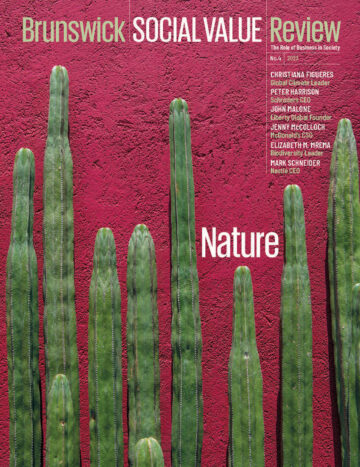
Nature Positive
Most read from this issue

Nature Targets with Teeth
